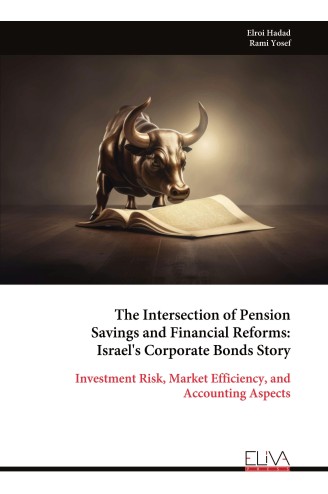Description
In the past two decades, Israel's corporate bonds market has transformed dramatically, driven by pivotal financial reforms aimed at enhancing market efficiency and depth. These reforms have significantly increased market capitalization, daily trading volume, and the number and size of corporate bond issuances. This comprehensive book explores the intricate relationship between pension savings and financial reforms in Israel, focusing on the development of the local corporate bonds market. It delves into the impact of institutional investors, the rise of retail investors, and the broader implications of market dynamics. "The Intersection of Pension Savings and Financial Reforms: Israel's Corporate Bonds Market Story" offers a deep dive into the historical context and recent developments in Israel's financial landscape. It examines the crucial role of institutional investors, particularly pension funds, in driving economic growth and market development. The book also addresses the significant risks introduced by increased exposure to the capital market, proposing innovative solutions to protect pension savers. Drawing parallels with the Pan-European Personal Pension Product (PEPP) initiative, this book discusses the potential impact of such reforms on European markets, highlighting the expected improvements in liquidity and market efficiency. This book is a valuable resource for policymakers, financial professionals, and academics. It provides insights into successful reforms in Israel, offering lessons for other countries aiming to develop their debt markets and ensure adequate long-term savings for their populations. Join us on this detailed exploration of how Israel navigated the complexities of financial reforms and pension savings, leading to a more efficient and robust corporate bonds market.




